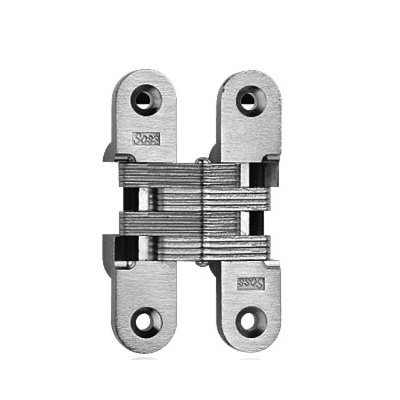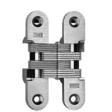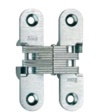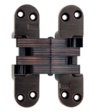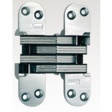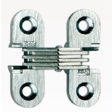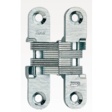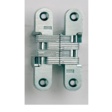About Soss
Joe Soss, inventor of the Soss Invisible Hinge, packed a lot of living into seven decades. Arriving in Montreal in 1894 from his native Rumania, the energetic young man started out as bricklayer and moved to Cleveland after hearing about a construction boom there. He soon became a contractor, building homes, stores, and schools. Several years later he won the bid to build the new state capitol in the fledgling state of Montana, and promptly headed 2,000 miles west to Helena to tackle the project. Completing the structure in 1902 (the building remains in use today), Soss was off to Butte, a hundred miles south, where a copper mining boom was underway. The growing city needed schools and Soss began building them. The U. S. had annexed the Philippines after the Spanish-American War and Soss couldn't resist the lure of starting another business. He sailed off to Manila where he built flat bottom boats that transferred freight from ships to docks. He left the country during a cholera epidemic, and stumbled on a protruding cargo hold hinge while strolling on deck during the voyage home. Sometime between his fall and the moment he picked himself up, the idea for the invisible hinge was born. A century later, his idea lives in millions of SOSS(R) Invisible Hinges in buildings and homes around the world, and in elevators, computers, jet planes, and wherever concealed hinges open and shut doors and lids. Soss managed the growing company for more than 25 years and was succeeded by his two sons, Sam and C. J. In 1940, they moved the operation to Warren, Mich., a Detroit suburb, to be closer to automotive customers. By 1960, the company had gone public, and Sam's son-in-law Hal Marko became president. During the next three decades dozens of industrial and electronic firms were added to the company roster, increasing annual sales to over $250 million. In 1972, the hinge business relocated to Pioneer, Ohio, where it remains today and is called Universal Industrial Products (UIP).



